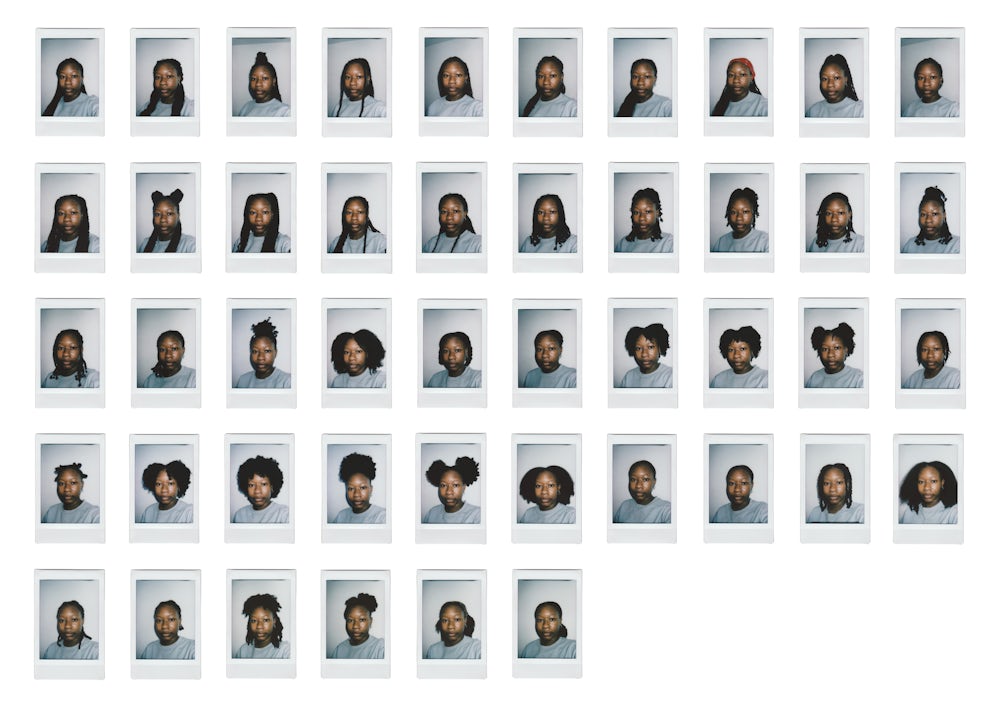Elizabeth Oluwarantimi Ehinmola
"‘Natural’"
Keywords: archival practice, body, documentation, feminist methodologies, identity
‘Natural’ is a colloquial term widely used among Black people to reference hair that is untreated by chemical processes, commonly known as ‘relaxers’, that alter the natural curl pattern of one’s hair. The method of ‘going natural’ has indeed been a process of decolonising both the mind and the body. Colonialism was not only the embodiment of politics and economics but was also the manipulation and destruction of both visible and invisible markers of identity. Eurocentrism and anti-black racism, as a result, interact to denigrate ‘Black’ features. Black hair has been an inherent symbol of the power structures created by colonisers. Those with attributes associated with whiteness, e.g., white skin, long and straight hair, had the privilege whilst those with dark skin and ‘nappy’/ ‘kinky’ hair did not.
Therefore, going natural is a process, occurring gradually. It is a transformation, a rebirth into a new, unknown self. It is just as emotional as it is physical, requiring great personal courage and mental fortitude. Motivations for going natural are as diverse as Black women themselves. My ambitions were decidedly intimate as they were political, unconsciously serving as a Black feminist statement. Although, as bell hooks stated, “many of us seek community solely to escape the fear of being alone”1, it does not negate the importance of being a part of something. I can recall back to my school days in which I always felt othered and aware that I was different due to my hair and skin. I ended up putting a relaxer onto my scalp, against my mother’s wishes. Burning my head but leaving me with the hair that I thought I wanted. Nonetheless, my new straight hair was limp, severely damaged and demanding to be cut off. Although at the time shaving my hair felt almost like a failure, it unconsciously gave me the fresh start I initially craved, allowing me to come to terms with my internalised racism.
For me, going natural wasn’t just an act of rebellion but was learning to be happy with the way I was and not feeling pressured to adhere to Western beauty standards. It was about resisting oppressive messages that define the natural Black feminine aesthetic as unattractive or undesirable. For me, going natural was about reclaiming my health, identity and view of self; truly understanding what encompasses self-love.
‘Natural’ explores the complicated yet highly personal relationship I have had with my hair, resulting in my struggles with identity. Through compiling a series of self-portrait photographs, documenting a variety of hairstyles, I reflect on my hair journey and how it has shaped the way I view myself as a Black woman. Although this journey is still ongoing, to me, it signifies an internal shift and as Toni Cade Bambara once said, “revolution begins with the self, in the self.” 2
